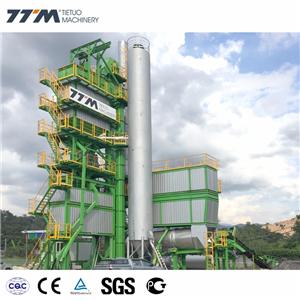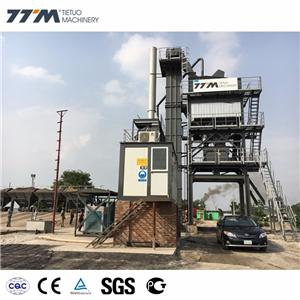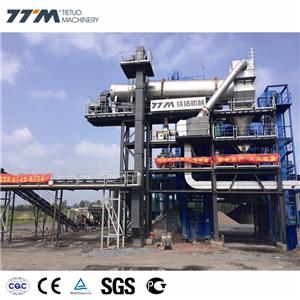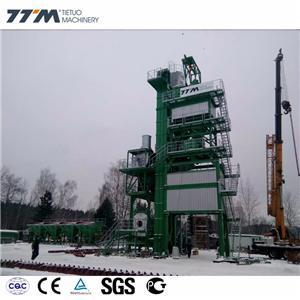Supply Discount recycle hot rap asphalt mixing plants supplier Factory
recycle hot rap asphalt mixing plants supplier
Mag-supply ng rap asphalt mixing plants
Limang taon na ang nakalilipas, nakahanap ng lugar sa merkado ang recycled asphalt tile (RAS).
Noong 2014, ang industriya ng paving ay gumamit ng halos 2 milyong tonelada ng RAS upang maglagay muli ng mga mixture at maghanda ng mga bagong kalsada, na minarkahan ang isang malakas at lumalaking customer base ng mga materyales na kadalasang ipinapadala sa mga landfill.
Gayunpaman, sa pagbaba ng presyo ng aspalto na semento, umiikot ang paggamit ng RAS. Ang industriya ng paglalagay ng kalsada ay lumipat sa mas murang hilaw na materyales, at ang paggamit ng RAS sa mga kalsada ay higit sa kalahati ng 2017.
Sa kabila ng masasamang bilang, (ASR), isang sistema ng pag-recycle ng aspalto sa Barrington, Rhode Island, ay hindi naapektuhan. Mula nang mabuo ito noong 2009, ang pangunahing layunin ng kumpanya ay ang makipagtulungan sa industriya ng bubong ng North America upang mapabuti ang sustainability ng negosyo nito sa pamamagitan ng paghahanap ng end market para sa RAS. Sa gitna ng biglaang pagbagsak ng ekonomiya, naging mapagbantay ang kumpanya sa mga pagsisikap nitong makamit ang mga layunin nito.
Si Alan Clark (Alan Clarke), kasosyo sa ASR Systems, ay nagsabi: "Gusto naming makita ang pag-recycle ng tile na maabot ang buong potensyal nito." "Nagkaroon kami ng magandang panahon at masamang panahon, ngunit naniniwala kaming magiging maayos ang lahat. Ngunit tayo at ang iba ay kailangang magbago kung paano gawin iyon. "
Ang mga tile ng aspalto ay ang pangunahing pinagmumulan ng basura sa industriya ng bubong, na may halos 90 porsyento ng mga tile ng aspalto sa mga landfill sa buong bansa, ayon sa ASR Systems.
Iniwan ni Dan Horton (Dan Horton) ang kanyang posisyon sa ehekutibo sa tagagawa ng bubong na IKO Industries noong 2009 upang itayo ang sistema ng ASR, nang layunin niyang bawasan ang proporsyon na iyon.
Simula noon, ang tatlong planta ng kumpanya-dalawa sa Tennessee at isa sa Connecticut-ay nagproseso ng higit sa 150000 tonelada ng RAS. Doon, itinatapon ng mga bubong ang kanilang mga ni-recycle na tile, at tulad ng karamihan sa mga taong nagre-recycle sa kanila, pinuputol ito ng ASR sa mas maliliit na piraso kaysa sa 3 / 8 pulgada sa pamamagitan ng pagbawas sa bilang ng mga device.
Gayunpaman, ang proseso ng asr, ay tumatagal sa iba pang mga anyo-na simula pa lamang ng paglahok ng kumpanya sa pag-recycle ng mga aspalto na tile.
pabrika ng rap asphalt plant supplier
Naging abala si Horton sa pagbuo ng mga bagong teknolohiya para sa machining, paghihiwalay at pagkuha ng mga aspalto na tile sa nakalipas na dekada.Sinabi niya na siya ay nakabuo ng isang "secret recipe" para sa pagproseso at nakasulat ng anim na patent sa nakalipas na dekada.
Dalawa sa anim na patent ay nauugnay sa isang bagong disenyo ng lalagyan na nangongolekta ng mga tile mula sa mga manggagawa sa bubong sa mas maginhawa at mas murang paraan kaysa sa tradisyonal na pamamaraan. Tatlo sa mga patent na ito ay nagtatag ng isang epektibong paraan ng mekanikal na pagkuha ng hilaw na aspalto mula sa mga tile upang makabuo ng mga alternatibong particle ng bubong, asphalt coated limestone, recycled asphalt at recycled glass fiber bundle powder.
"Asphalt mismo ang pinakamahal na bahagi ng tile. Kaya naman nakatutok ang industriya sa paggamit ng produkto, "sabi ni Mr Horton. "Hindi ko sasabihin na ang industriya ng aspalto ng pavement ay hindi angkop para sa paggawa ng ganitong uri ng produkto. Ibig kong sabihin, sa mas mahusay na pagpoproseso ng tile, maaari kang magbenta ng higit pang mga produkto sa industriya ng asphalt pavement. "
Sa application na ito, binibigyang-diin ng Kraton high performance polymer ang styrene-butadiene-styrene (SBS) modified adhesive nito, na napatunayang may mas mahusay na katangian kaysa non-polymer modified adhesive.
Sa kasalukuyan, pinapayagan ng Florida Department of Transportation (FDOT) ang hanggang 20% RAP, na magamit sa anumang halo gamit ang PG 76-22 upang samantalahin ang pagiging epektibo sa gastos ng RAP at ang mga benepisyo sa pagganap ng mga polymer.
Ang isa sa mga problema sa mataas na nilalaman ng RAP ay ang pagpapalit ng mga recycled na binder, na katumbas ng hindi gaanong orihinal na aspalto, kaya't natutunaw ang nilalaman ng polimer.
Mobile Asphalt Batch Mixing Plan
Discount recycle hot mixing plant
Upang malutas ang problemang ito, inirerekomenda ng Kraton ang paggamit ng teknolohiyang pampabata nito upang i-activate ang mga RAP adhesive at "rebalance" ang mga ito sa mas malambot, mas praktikal na mga produkto. At ang polymer modified adhesive (HiMA) na itinalaga bilang "polymer" sa detalye ng FDOT.
"bilang resulta, pinapataas ng 'aging agent' ang dami ng RAP at maaaring gamitin sa mixture habang binabayaran ang diluted polymer content, " sabi ng materyal na kumpanya. "
Ipinaliwanag ni Kraton na ang paggamit ng konsepto ng balanseng hybrid na disenyo upang ma-optimize ang crack at rutting performance ng mga asphalt mixtures ay isang paraan upang payagan ang mga manufacturer ng aspalto na makahanap ng mga makabagong paraan upang magamit ang RAP habang pinapanatili ang performance.
Sa proseso ng disenyo, itinuturo na kung mababa ang mga resulta ng pagsubok sa paglaban sa crack, ang karaniwang solusyon ay upang bawasan ang nilalaman ng RAP o dagdagan ang nilalaman ng aspalto na panali; ang huli ay mas mahal.
Isang survey ng recycled asphalt pavement (RAP): Nalaman ng NAPA na ang paggamit ng RAP ay tinatayang tumaas ng higit sa 36 porsyento mula noong 2009. Noong 2017 lamang, binawasan ng RAP ang demand para sa 3.8 milyong tonelada ng asphalt binders at higit sa 72 milyong tonelada ng pinagsama-samang, na may kabuuang halaga na higit sa $2.1 bilyon.Popular ang RAP dahil sa nakahanda nitong supply at inaasahang magkakaroon ng 102.1 milyong tonelada ang stock sa pagtatapos ng construction season sa 2017. Gumagawa din ito ng mataas na kalidad na mga mixture. Ang ulat ng Federal Highway Administration (FHWA) ay nagpapakita ng hanggang 30% ng pagganap sa kalsada.




